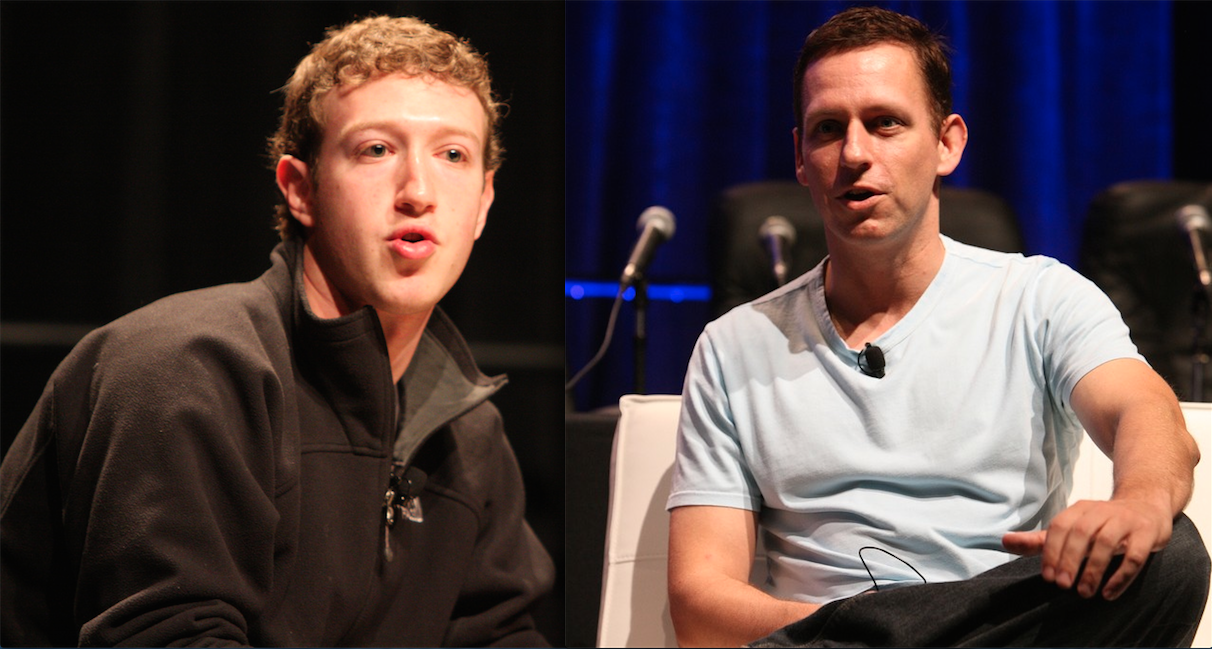Previously Published on LinkedIn
By Ed McLaughlin and Wyn Lydecker
What makes an entrepreneur become wildly successful? Is it luck, hard work, skill, or a combination? In a Town Hall Q&A talk earlier this year Mark Zuckerberg attributed Facebook’s success partly to luck:
“There was no reason why a group of college students should’ve been able to build this network,” he said. “Some company that knew way more about building things should’ve done that instead. So there was definitely a lot of luck involved in the fact that we ended up being the people to do it.”
On the other hand, Peter Thiel, Facebook’s first investor and also co-founder of PayPal and Palantir, said, “Luck is just an excuse for not working hard enough,” in this video from Entrepreneur magazine.
Who is right?
What Do Entrepreneurs Believe About Luck?
A study by Diego Liechti and Claudio Loderer of the University of Bern, Switzerland, and Urs Peyer of INSEAD, dug into the question more deeply. Their model, based on a broad survey of entrepreneurs, showed that luck was responsible for only 17% of business performance. Said another way, business owners credited luck less than any other factor in achieving success. Effort, experience, and talent were far more important. Other factors, such as education and your professional network, were also considered far more influential than luck. The study used sales, aggregate income, and return on initial investment as markers for business success (adjusted for industry and year founded).
It’s the hard work and dedication that lead great entrepreneurs to arrive at the right combination of factors to create a breakthrough product. In Zuckerberg’s Town Hall meeting, he elaborated on this point:
“Ideas typically do not just come to you,” he said. “It’s a lot of dots that you connect to make it so that you finally realize that you can potentially do something.”
Richard Branson would agree. In his book, The Virgin Way, he wrote about a golfer who, in the final round of the British Open, made an amazing shot out of deep bunker off the flagpole and then into the hole. The British commentary team shouted, “What a lucky shot!” But then a retired champion commentator in the broadcast booth contradicted them: “Lucky! What do you mean ‘lucky’? Do you know how many thousands of hours we all spend practicing shots like that? He was trying to put it in the hole and he succeeded. Let me tell you, he worked long and hard on getting that lucky!”
The Role of Distinctive Competence
It’s those hours of dedication, experience, hard work, grit, and determination that all go into the making of a successful entrepreneur. We call the combination of unique experience, skill, and knowledge distinctive competence. You can use your distinctive competence to develop a bankable business idea and minimize the risk of starting up. With distinctive competence you have knowledge of existing business models, customers, customer needs, pricing, and competition. If you’re planning to start your own business, use your distinctive competence to answer the following questions:
- Do you see a need, gap, or pain point in the market that you can fill with your unique knowledge, skill, talent, or experience?
- Can you choose a business where you have a working knowledge of existing business models, customers, customer needs, pricing, and competition?
- Can you fill a competency void in the market you have identified with complementary partners, team members, technology, tools, or education?
Luck and Hard Work
When you use your distinctive competence and then work very hard, you make your own luck. The idea of making your own luck dates back to an old adage from the 16th Century:
Diligence is the mother of good luck. – Oxford Dictionary of Quotations
What do you believe? Do successful entrepreneurs make their own luck by working hard?
Ed McLaughlin is currently co-writing the book, The Purpose Is Profit: The Truth about Starting and Building Your Own Business, with Wyn Lydecker and Paul McLaughlin.
They are currently offering a complimentary eCopy of The Startup Roadmap: 21 Steps to Profitability here.
Copyright © 2015 by Ed McLaughlin All rights reserved.





It’s not surprising that only 17% of business owners claim it’s luck. Would you want to look like a lucky guy or a brilliant guy?
Ask a CEO and a Mathematician the same question you receive two completely varied responses.